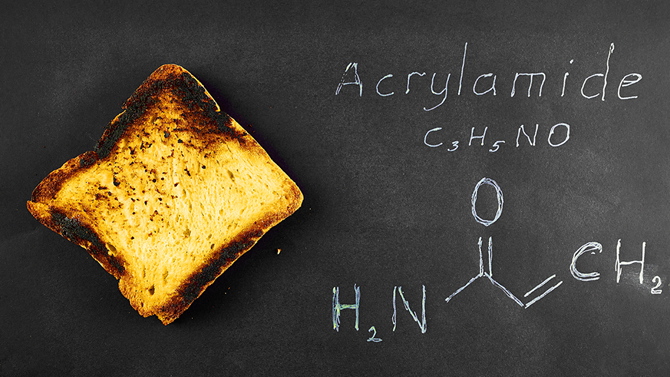Food and a primary link to human cancer: Developing techniques to measure a potent carcinogen present in cooked foods

- Project start date: 1 October 2002
- Project status: Completed
- Project type: Food safety
- Discipline: Food safety - other
- Author/s: Prof Chris Elliott, Queen’s University Belfast
- Collaborator/s: Single supplier
Research objective
One of the research recommendations that emerged from the World Health Organisation (WHO)/Food and Agriculture Organisation (FAO) Acrylamide in Food Network was the need to develop simple low-cost method(s) to be used for routine monitoring.
The objective of this research was to design rapid and accurate tests for this carcinogenic compound.
Research report
- Title: Unpublished report. See below for peer reviewed article.
- Date: 8 September 2008
- Summary: Designing rapid and accurate tests for the carcinogenic compound, Acrylamide.
- Findings:
Two antibody based tests – ELISA and biosensor immunoassays – were produced and were shown to give rapid, quantitative and reproducible results for large numbers of food samples and across a wide range of food matrices.
In addition, these methods were shown to detect adducted acrylamide in human blood samples. Rapid sample preparation permits the analysis of a greater number of samples per day than would be possible with an equivalent LC/MS-MS system. Both ELISA and biosensor immunoassays for the detection of acrylamide in food were the first of their kind.
Other outputs
Preston, A., Fodey, T., Elliott, C.*.(2008).“Development of a high-throughput enzyme-linked immunosorbent assay for the routine detection of the Carcinogen Acylamide in food, via rapid derivation pre analysis”. Analytica Chimica acta 608 (2008) 178-185.
Preston, A*, Fodey, T., Douglas, A., Elliott, C. “Monoclonal antibody development for Acrylamide-adducted human haemoglobin; A biomarker of dietary acrylamide exposure”. Journal of Immunological Methods 341 (2009) 19-29.




